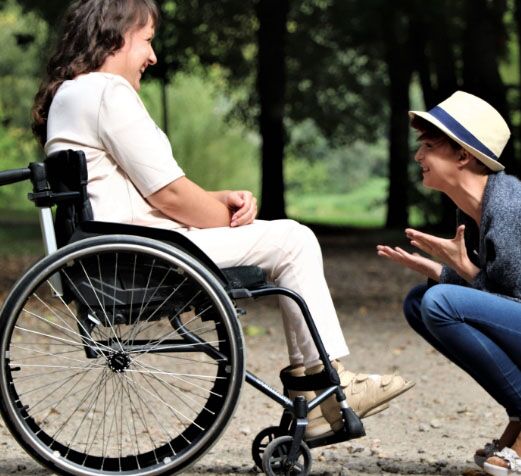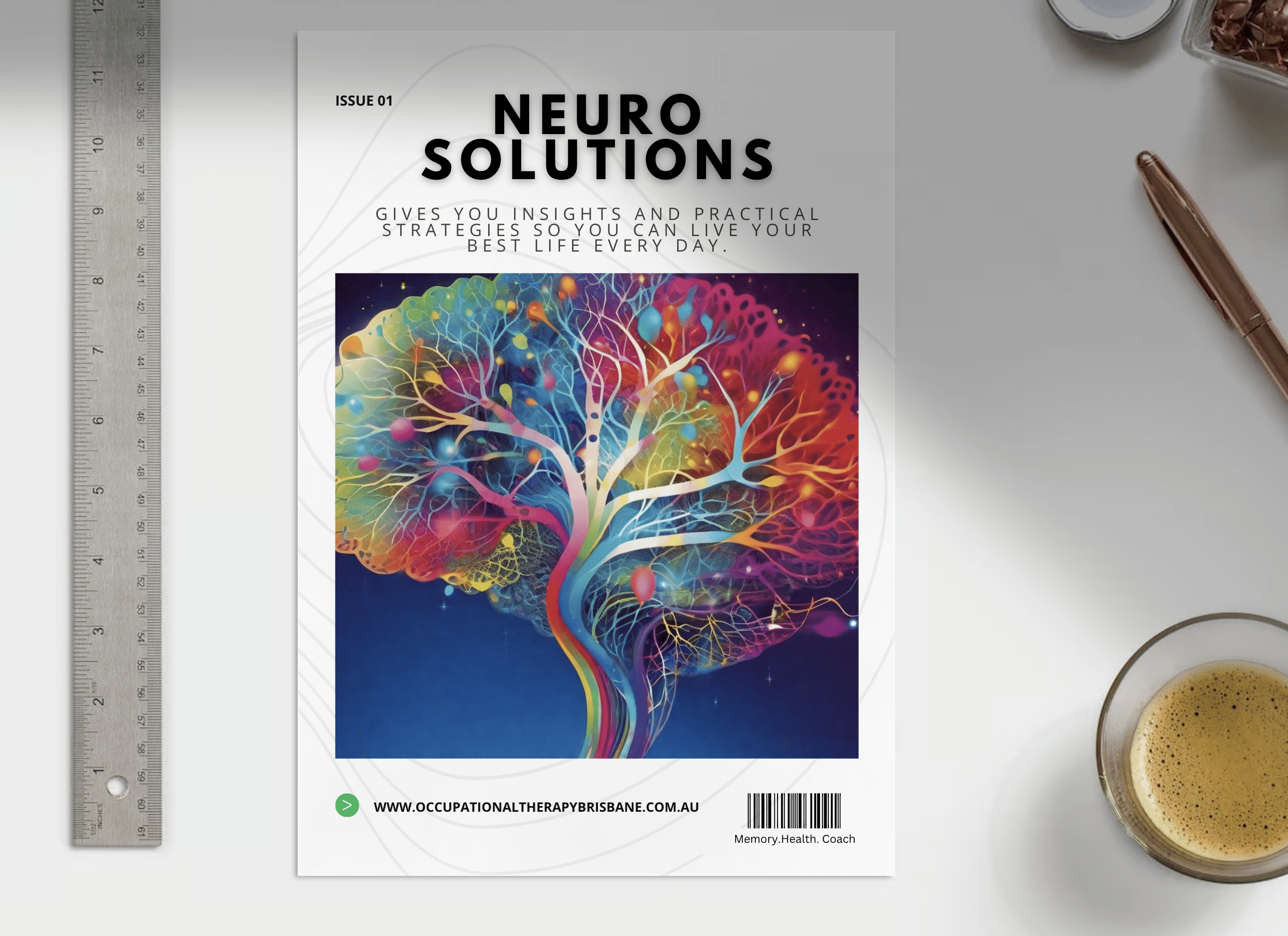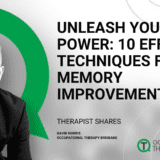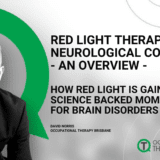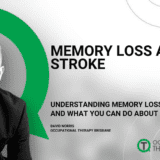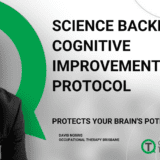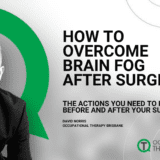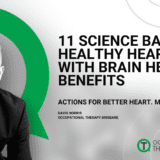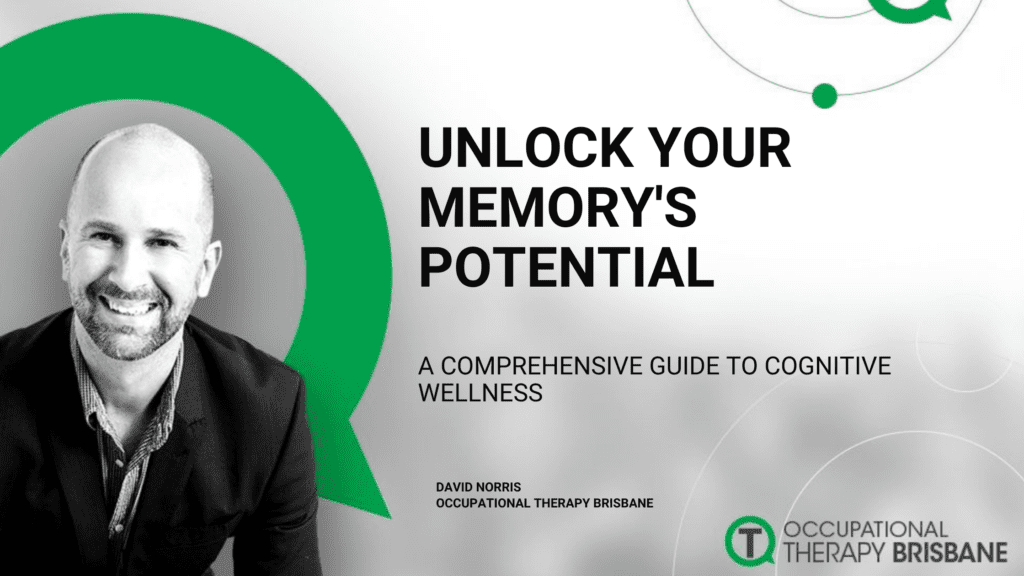
Unlock Your Memory’s Potential: A Brief Guide to Cognitive Wellness
Memory health is not just a matter of recalling names and dates; it’s the cornerstone of cognitive vitality, shaping our ability to navigate the world with clarity and confidence. As we embark on this journey, envision unlocking the full potential of your memory—transforming it from a mere repository of facts into a dynamic force that enhances your cognitive wellness.
This concise guide is a roadmap, navigating through the fascinating realms of memory health, lifestyle choices, and age-related nuances. It’s what we hope most people know before they see us in the memory health clinic.
Join us on this exploration, where the benefits extend beyond just memory; it can possibly lead you to embrace a life rich with mental acuity, resilience, and the joy of an optimally functioning mind.

Understanding the Foundations: What Is Memory Health?
The Memory Spectrum:
Memory health is a dynamic spectrum that encompasses a range of cognitive functions, from short-term recall to long-term retention. Our memory is not a monolithic entity but rather a multi-faceted landscape where different types of memories reside. Short-term memory allows us to remember recent events or information, while long-term memory stores experiences that have shaped our lives. Understanding this spectrum provides a nuanced perspective on the diverse aspects that contribute to cognitive wellness.
The Brain’s Orchestra:
At the heart of memory health lies the brain, orchestrating a symphony of neural connections and intricate pathways. The hippocampus, a key player in this cognitive orchestra, acts as the conductor, coordinating the formation and retrieval of memories. As we explore memory exercises and lifestyle choices, it’s essential to appreciate the role of this cerebral maestro in orchestrating the harmonious dance of memory.
Neuroplasticity and Memory:
Memory health is not a static state but a product of the brain’s remarkable adaptability, known as neuroplasticity. This phenomenon allows the brain to reorganize itself, forming new neural connections and pathways in response to learning and experiences. Acknowledging the plastic nature of our brains underscores the potential for improvement and optimization, even as we age.
In navigating the foundations of memory health, you embark on a journey into the intricate workings of the brain, where each facet contributes to the symphony of cognitive vitality.

Unlocking the Secrets of Cognitive Fitness
Embark on a journey to unravel the mysteries of memory health. Let’s begin by understanding the foundations and intricacies of cognitive wellness.
The Architecture of Memory:
- Picture your memory as an intricate architectural marvel. It’s not just about storing information; it’s about how the brain designs and constructs the framework of our recollections. The amygdala, responsible for processing emotions, and the prefrontal cortex, governing decision-making, weave together a tapestry of memories imbued with both factual details and emotional resonance.
Lifestyle Choices and Memory Harmony:
- Imagine memory as a melody influenced by the notes of our lifestyle choices. Nutrition, exercise, and quality sleep compose the harmonies that support cognitive function. A diet rich in omega-3 fatty acids and antioxidants acts as the musical score, enhancing brain health. Meanwhile, physical activity orchestrates a rhythmic dance that stimulates the release of neurotransmitters crucial for memory consolidation.
The Dance of Neurons:
- As you navigate the realms of memory health, envision a dance floor where neurons perform intricate choreography. Neurotransmitters, the messengers of the brain, engage in a delicate ballet, transmitting signals across synapses. The more vibrant this dance, the more resilient our memory. Engaging in activities that challenge the brain—be it learning a new skill or solving puzzles—fuels this choreographic brilliance.

Optimizing Cognitive Harmony
Mindfulness as the Maestro:
- In our exploration, mindfulness emerges as the maestro guiding the orchestra of memory. The practice of being present in the moment enhances focus and concentration, crucial elements for memory retention. Mindful meditation becomes a powerful instrument, tuning the mind to the frequency of clarity and cognitive acuity.
Continuous Learning as a Symphony:
- Consider continuous learning as the symphony that keeps our cognitive abilities in tune. Learning new things creates new neural pathways, enriching the vast landscape of our memory. Whether it’s exploring a new language, pursuing a hobby, or acquiring a new skill, the symphony of lifelong learning reverberates through the corridors of cognitive vitality.

Memory Exercises: Training Your Brain for Optimal Performance
Equip Yourself with Practical Memory Exercises
Memory, much like a muscle, possesses the incredible capacity to be trained and fortified. In this segment, you embark on a journey through practical memory exercises, offering you a toolkit to enhance cognitive function and maintain the agility of your brain.
3 Practical Memory Exercises
Mnemonics: Unleashing Everyday Memory Aids
Incorporate mnemonic devices seamlessly into your daily routine. Whether crafting acronyms or rhymes, these mental shortcuts transform information retrieval.
- For instance, create acronyms for your shopping list or turn essential details into catchy rhymes.
Make these memory aids your everyday companions, effortlessly enhancing your recall abilities.
Visual Associations: Integrate Imagery into Daily Habits
Bring the power of visualization into your daily rituals.
- When meeting someone new, associate their name with a vivid mental image, like a distinctive facial feature.
- Linking information to mental pictures creates lasting connections.
Apply this technique during your morning routine or while commuting to seamlessly integrate visual associations into your day.
Brain-Boosting Games: Fun and Functional Cognitive Workouts
Incorporate brain-boosting games into leisure time.
- Choose puzzles that align with your interests, solving crosswords or Sudoku during breaks.
- Explore online platforms offering interactive brain training. From memory games to problem-solving challenges, make cognitive workouts a joyful part of your routine.
- Turn downtime into an opportunity for brain-friendly fun.
These practical memory exercises are not just theoretical concepts but actionable steps towards fortifying your cognitive resilience.

Lifestyle Choices for Cognitive Vitality
Explore the Impact of Lifestyle Choices on Memory Health
Beyond the realm of physical exercises, the 3 lifestyle factors that are often less regarded also are key players in sustaining optimal memory health. This section navigates through the profound impact of lifestyle choices on cognitive vitality, providing insights and practical tips for cultivating a brain-healthy routine.
3 Cognitive Vitality Lifestyle Tips For Your Daily Brain Boost
- Nutrition for the Mind: Feed Your Brain, Not Just Your Body
Elevate your cognitive health with simple yet powerful nutritional choices.
- Integrate omega-3 fatty acids from sources like salmon or mackerel and embrace the antioxidant-rich goodness of fruits and vegetables.
- Dive into the practicality of the MIND diet, a targeted plan designed to enhance brain health by focusing on.
- Antioxidant-Rich Foods: Embrace the vibrant spectrum of berries, leafy greens, and nuts to counteract oxidative stress and support brain health.
This isn’t just about theory; it’s a hands-on, action-taking mindset to make intentional decisions in your daily meals for a sharper mind.
- Quality Sleep: Unlock Your Brain’s Potential with Better Nights
Grasp the science behind sleep and its impact on memory consolidation. Upgrade your sleep quality with actionable strategies:
- Create a Sleep Sanctuary: Design your bedroom for optimal sleep, minimizing noise and light.
- Establish a Wind-Down Routine: Develop calming pre-sleep rituals, such as reading or gentle stretching.
- Consistent Sleep Schedule: Stick to a regular sleep pattern to regulate your body’s internal clock.
- Stress Management: Tools to Fortify Your Mind Against Stress
Arm yourself with practical stress management techniques for a resilient mind:
- Mindfulness Meditation: Cultivate mindfulness through daily meditation practices to reduce stress.
- Deep Breathing Exercises: Incorporate deep breathing techniques to calm the nervous system.
- Physical Activity: Engage in regular physical activity, proven to be a powerful stress buster.
Your lifestyle choices are not just daily routines; they are the building blocks of a resilient and vibrant cognitive landscape.

Understanding Age-Related Changes
Demystifying Age-Related Variations in Memory
As the chapters unfold in the book of our lives, the tapestry of memory undergoes a subtle metamorphosis. Let’s navigate the nuances:
Age-Related Memory Insights:
- Normal Ageing vs. Abnormal Ageing (MCI and Dementia):
Around the age of 30, you reach a pinnacle in many cognitive abilities. As time progresses, subtle changes may occur, such as a slight slowdown in thinking, challenges in multitasking, and occasional word-finding difficulties. These are the normal ebbs and flows of ageing. Now, let’s clarify abnormal ageing:
Mild Cognitive Impairment (MCI):
When cognitive declines become noticeable but don’t hinder daily activities like shopping or cooking, it falls under MCI—a stage where memory changes exist but daily tasks can still be managed effectively.
Dementia:
Contrastingly, dementia denotes cognitive difficulties that significantly impede everyday tasks. In this post, we’ve touched on the distinctions between the normal ageing process and abnormal ageing. You can go deeper in another blog-post where you learn about the difference between Alzheimer’s and Dementia.
Being a guardian of your memory involves understanding these changes and knowing when to take proactive measures for cognitive preservation. As you embark on your journey to unlock your memory’s potential, remember that professional guidance may likely help.

Contact Occupational Therapy Brisbane: Your Partner in Cognitive Wellness
Here’s How To Take the Next Step Towards Optimal Cognitive Health
As you embark on your journey to unlock your memory’s potential, remember that professional guidance may likely help.
Contact Occupational Therapy Brisbane, Call 1300 783 200, Today.
Your team is dedicated to supporting your cognitive wellness journey. Whether you seek personalised exercises, lifestyle advice, or insights into age-related changes, our team is here to guide you towards optimal cognitive health.


